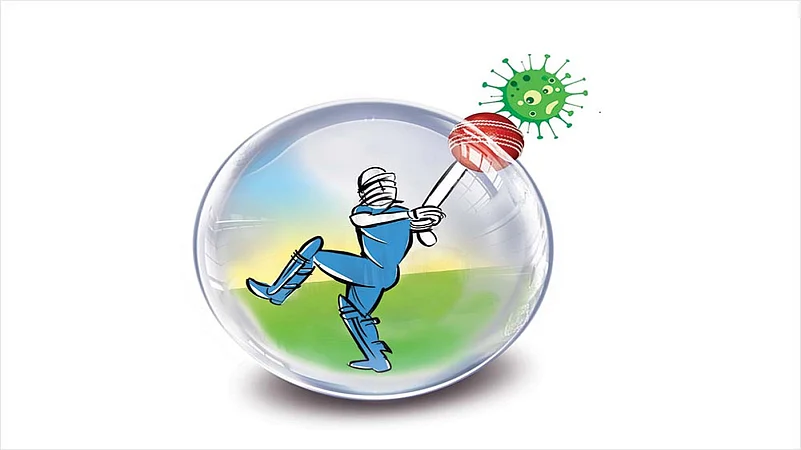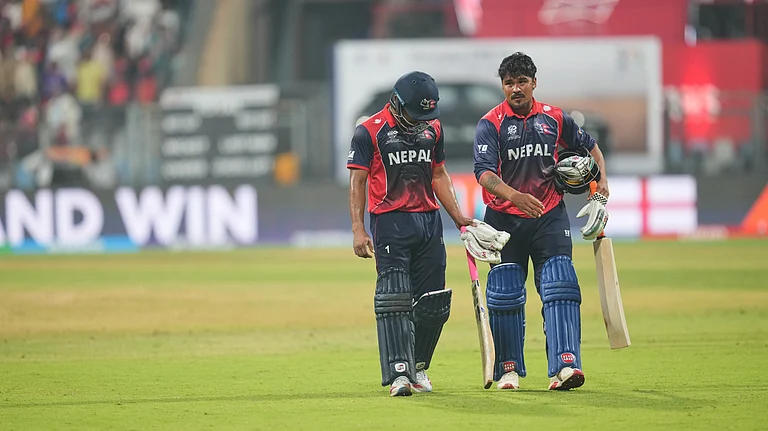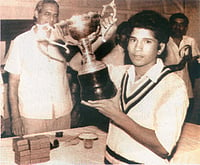To start with, I had no clue about a ‘bio-bubble’, only some information from the ongoing series then in England. I had apprehensions about how it was going to be managed in the UAE, in a complex tournament like the IPL. My IPL preparations had started when we were still in lockdown. Every member of the Rajasthan Royals support staff and management was in touch five or six months prior to the IPL, and it was one of our best preparations ever. If I look back at how things transpired on the Covid front, with all that testing, it seems like a blur. But I felt exactly the same as I did when padded up and waiting to bat.
Joining the team in a Mumbai hotel, we had to undergo two days of quarantine. To be restricted to a room and not be in touch with anyone, we felt it was a massive test for us. The bus from the hotel to the airport in Mumbai felt surreal—seeing everyone after two days, knowing that we were heading into the unknown, the only solace perhaps being that we were all in it together. Our flight to Dubai was fit for the occasion—the PPE kits, the chartered airplane, dozens of forms we had to fill and all the safety measures. It seemed a bit extra-terrestrial. In Dubai, we again quarantined in our separate rooms for six days. The isolation was challenging, but luckily, I had some balcony space where I would practise my tennis backhand. The internet took care of the rest. At quarantine’s end, it was sheer joy to see another living soul.
During training, some players were rusty, some seemed themselves, while some were a bit overanxious. I got down to marking all the batsmen into a chart, showing where they stood and the volume of training they would need to get back in shape.
I noticed that the lockdown had wrought positive behavioural changes in some players. Being totally on one’s own helps people ground themselves.
John Gloster’s keen eye for technological advancements in fitness and the innovations he brought about this season were amazing. The cryo-therapy recovery sessions were brilliant. Ditto the Clarius portable ultrasound investigation unit, which helped investigate muscle issues and conditions for the players.
I preferred the travel and hotel arrangements in IPL 2020 to the previous practice of packing after the game and loading on to the flight for the next one. Reduced travel and returning to the same hotel gave us time to relax and recollect. The beach was a big getaway for us; we had a private area reserved for Rajasthan Royals. We loved it—high catching with tennis balls, beach football and just relaxing. The bonding sessions were invigorating and built a sense of togetherness. The team room—furnished with indoor games like snooker, table tennis, and a Formula 1 simulator—was a haven for players, a place where they would forget the cricket and all the bubble restraints.
Families of some players were able to join in, which helped lift the mood. Inside the bio-bubble after a certain stage, it does get tiring and monotonous. People behind the scenes were able to do a wonderful job in the bubble. Especially the experimentation with various cuisines, The Kerala sadya dinner was a hit and Sanju Samson helping Jos Buttler try out the traditional cuisine was the highlight.
Overall, this was a highly challenging IPL season for me. The absence of crowds was, of course, keenly felt by all of us. Certain players thrive off crowds, motivate themselves, and raise their levels. With no crowds, as coaches, we looked to create that buzz for players from the outside. I also felt this was an amazingly well-organized tournament. The BCCI and all franchises deserve fulsome praise for making this IPL a success. Thinking about next year, despite my experiences in the past three months, I am still unsure. Who knows what the future holds for cricket amidst the pandemic. But, if need be, I feel a lot of us would be willing to go through the entire challenging experience again to be a part of this magnificent event that brings joy to a billion people every year.






















